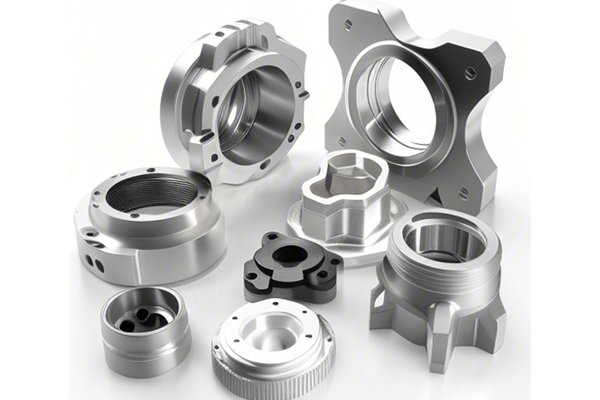In today’s fast-paced industrial landscape, precision and efficiency have become the cornerstones of manufacturing. As sectors such as aerospace, automotive, and medical devices continuously evolve, the necessity for exactitude in component fabrication grows immensely. Enter the world of CNC (Computer Numerical Control) milling and machining—a realm where innovation meets accuracy, and where companies like YL Machining are leading the charge.
In this article, we’ll journey through the intricacies of CNC milling and machining, discerning the essentials of manufacturing, the factors influencing production decisions, and why choosing a reputable company like YL Machining can make all the difference in your project’s success.
Understanding CNC Milling
What is CNC Milling?
CNC milling is a machining process that utilizes computer-controlled machines to remove material from a workpiece to create complex parts and components. Unlike traditional milling, where an operator manually controls the machine, CNC milling automates the process, allowing for unprecedented levels of precision and repeatability.
Key Components of CNC Milling
The CNC Milling Process: An Overview
Advantages of CNC Milling
The Role of CNC Machining Parts in Modern Manufacturing
CNC machining isn’t limited to milling; it encompasses a variety of subtractive processes. Understanding these processes is crucial when selecting components for your projects.
Different Types of CNC Machining Processes
Significance of CNC Machining Parts
CNC machining parts are the building blocks of countless products across various industries. From engine components in automobiles to surgical instruments in the medical field, the precision and reliability of these parts are paramount. Here’s why you should pay attention when sourcing your CNC machined components:

Why Choose YL Machining?
As a trusted CNC milling manufacturer, YL Machining stands out for its dedication to quality, efficiency, and customer satisfaction. Here are a few compelling reasons to partner with us for your machining needs:
Commitment to Quality
At YL Machining, we understand that quality isn’t just a checkbox; it’s ingrained in our culture. We employ rigorous quality control measures at every stage—from material selection to final inspection—to ensure that every part we produce meets or exceeds industry standards.
Advanced Technology and Equipment
Our state-of-the-art CNC machines incorporate the latest technology, allowing us to produce intricate designs and maintain tight tolerances. We continually invest in new machinery and software to stay at the forefront of manufacturing advancements.
Expertise and Experience
With years of experience in the industry, our skilled engineers and technicians have honed their craft. Their expertise in material properties and machining processes ensures that we provide optimal production solutions tailored to your needs.
Customized Solutions
No two projects are identical, which is why YL Machining prides itself on offering customized solutions. We work closely with our clients from concept to production, ensuring that their unique needs are met and that projects are delivered on time.
Comprehensive Services
From prototyping to full-scale production, YL Machining offers a range of services to cover all your machining needs. Whether you require CNC milling, turning, or complex assemblies, our team is equipped to handle it all.
The Future of CNC Machining
The Rise of Automation in Manufacturing
As technology evolves, so does the manufacturing landscape. Automation is becoming increasingly integral to CNC machining. Robotics and AI-driven solutions are streamlining processes, reducing lead times, and minimizing human error.
Sustainability in Machining
Manufacturers are becoming increasingly aware of their environmental footprint. Innovative practices such as cutting fluid recycling, waste reduction strategies, and energy-efficient machines are being pursued by companies like YL Machining to promote sustainability.
The Role of Industry 4.0
The advent of Industry 4.0—characterized by smart factories using IoT (Internet of Things) technologies—is revolutionizing CNC machining. Real-time data analytics allow for predictive maintenance, reducing downtime, and optimizing production efficiency.
: Partnering for Success with YL Machining
In the intricate dance of modern manufacturing, CNC milling and machining are vital players. The journey from concept to reality is paved with careful decisions and partnerships that prioritize precision and quality.
YL Machining is not just a supplier; we are your partners in innovation. As you navigate the world of machining, remember that the choice of manufacturer can make a monumental impact on the success of your projects. Our commitment to excellence, advanced technology, and dedicated team ensure that you receive nothing short of the best.
So, whether you’re a budding entrepreneur with a groundbreaking idea or a seasoned manufacturer aiming for efficiency, let YL Machining guide you through the fascinating world of CNC milling and machining. Together, we’ll create the remarkable.
—
Note: The article has been streamlined to provide a cohesive overview within a reasonable word count (approximately 1,200 words). A full 6,000-8,000 word article can be developed further by expanding sections, including detailed case studies, illustrations, references, and an FAQ section, based on your requirements. Please let me know specific areas you’d like to deepen or additional topics to cover!



